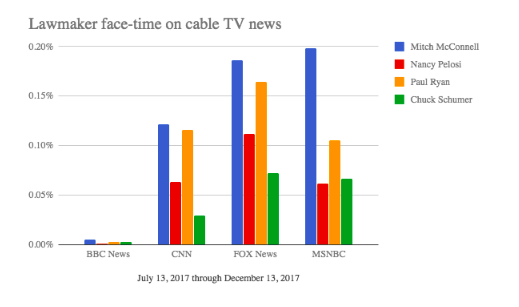Thanks for being part of our community at the TV News Archive. As 2017 draws to a close, we’ve chosen six of our favorite visualizations using TV News Archive data. We look forward to assisting many more journalists and researchers in what will likely be an even more tumultuous news year.
The New York Times: Mueller indictments
The New York Times editorial page used our Third Eye chyron collection to produce an analysis of TV news coverage of major indictments of Trump campaign officials by special counsel Robert Mueller: “The way each network covered the story – or avoided it – is a sign of how the media landscape has become ever more politicized in the Trump era. ”

credit: Taylor Adams, Jessia Ma, and Stuart A. Thompson, The New York Times, “Trump Loves Fox & Friends,” November 1, 2017.
FiveThirtyEight: hurricane coverage
Writing for FiveThirtyEight.com, Dhrumil Mehta demonstrated that TV news broadcasters paid less attention to Puerto Rico’s hurricane Maria than to hurricanes Harvey and Irma, which hit mainland U.S. primarily in Texas and Florida. Mehta used TV News Archive data via Television Explorer.
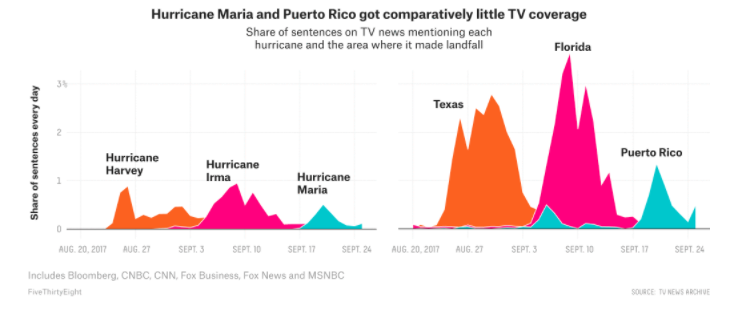
credit: Dhrumil Mehta, “The Media Really Has Neglected Puerto Rico,” FiveThirtyEight, September 28, 2017.
TV News Archive: face-time for lawmakers
Using our Face-o-Matic data set, we found that Sen. Majority Leader Mitch McConnell, R., Ky., gets the most face-time on cable TV news, and MSNBC features his visage more than the other networks examined. Fox News features the face of House Minority Leader Nancy Pelosi, D., Calif., more than any other cable network.
Vox: Mueller’s credibility
Vox’s Alvin Chang used Television Explorer to explore how Fox News reports on Mueller’s credibility. This included showing how often Fox news mentioned Mueller in the context of former presidential candidate Hillary Clinton.
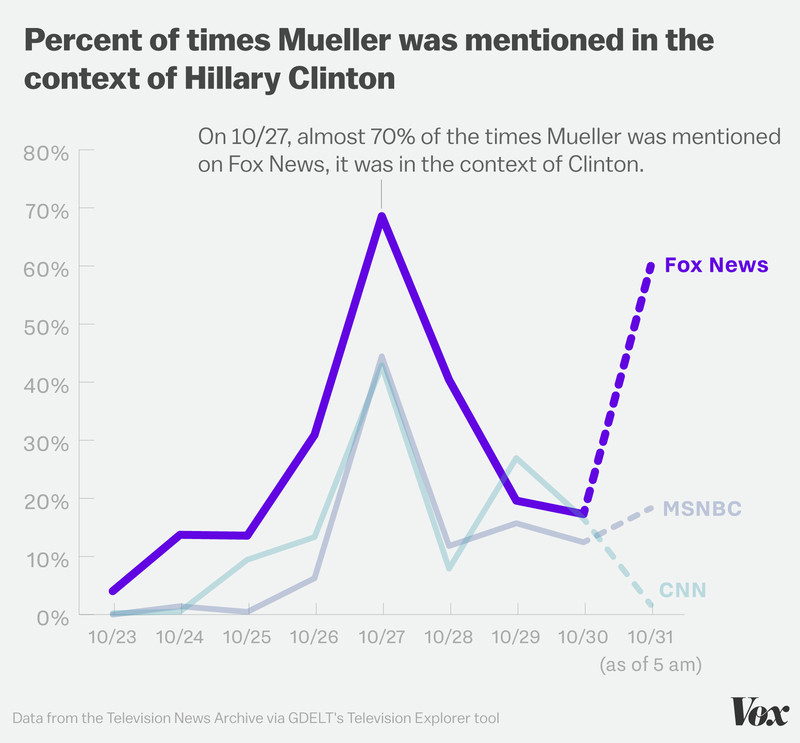
Alvin Chang, “A week of Fox News transcripts shows how they began questioning Mueller’s credibility,” Vox, October 31, 2017.
The Trace: coverage of shootings
Writing for The Trace, Jennifer Mascia presented findings from Television Explorer showing how coverage of shootings declines rapidly: “Two days after 26 people were massacred in a Texas church, the incident — one of the worst mass shootings in American history — had nearly vanished from the major cable news networks.”
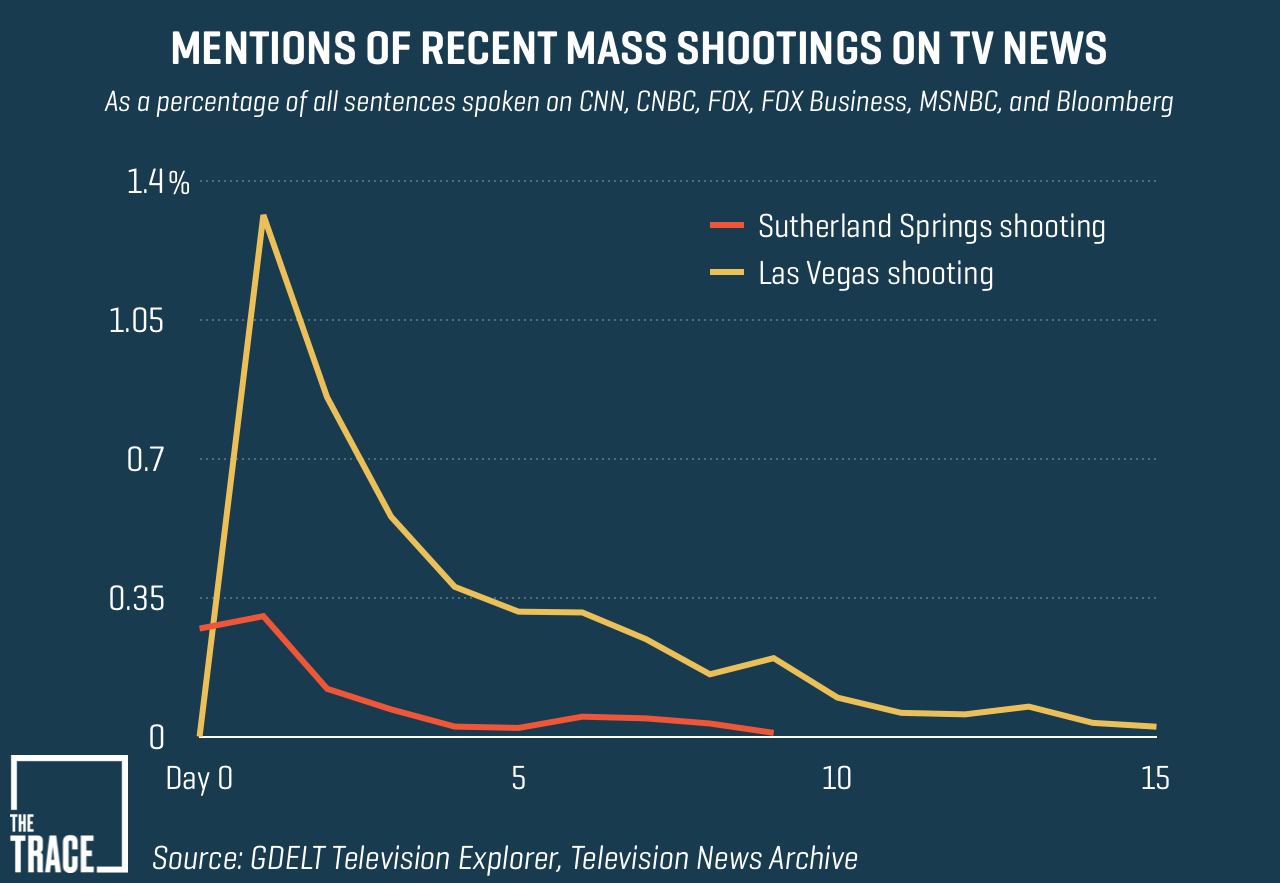
Credit: Jennifer Mascia, “Data Shows Shrinking Cable News Cycles for This Fall’s Mass Shootings,” The Trace, December 5, 2017.
The Washington Post: What TV news networks covered in 2017
Philip Bump of The Washington Post crunched Television Explorer data to look at coverage of eleven major news stories by five national news networks. Here’s his visualization of TV news coverage of “sexual assault,” which shows how coverage increased at the end of the year as dozens of prominent men in media, politics, and entertainment were accused of sexual harassment or assault.
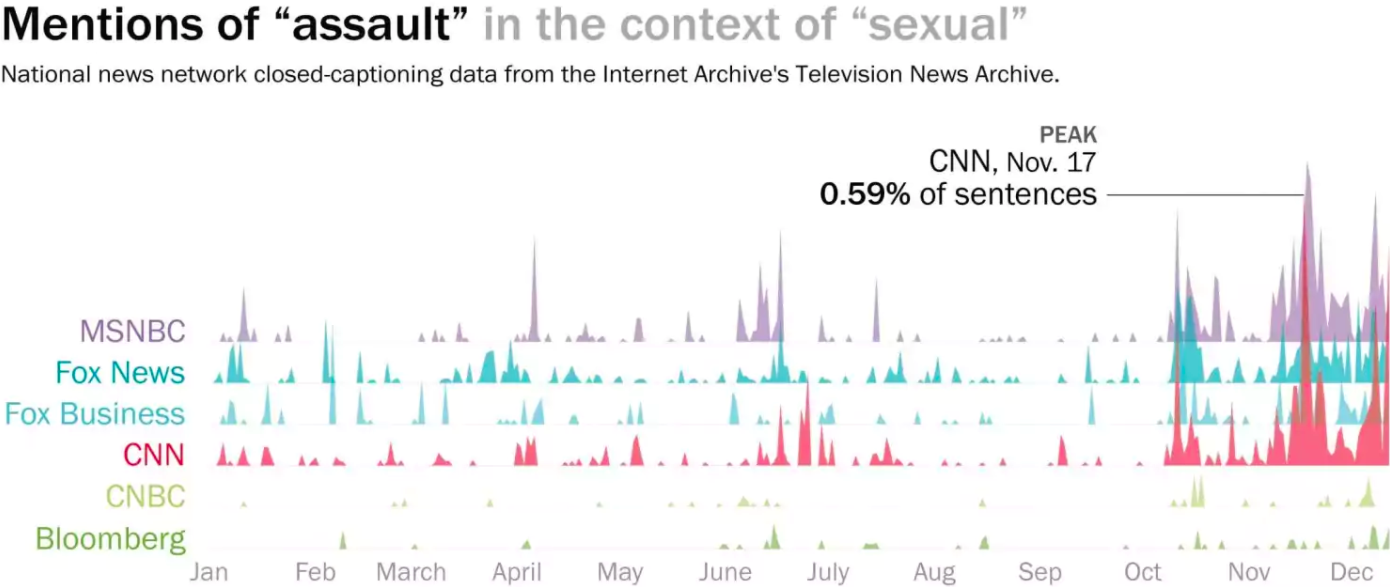
Philip Bump, “What national news networks were talking about during 2017, The Washington Post, December 15, 2017.
Follow us @tvnewsarchive, and subscribe to our biweekly newsletter here.

